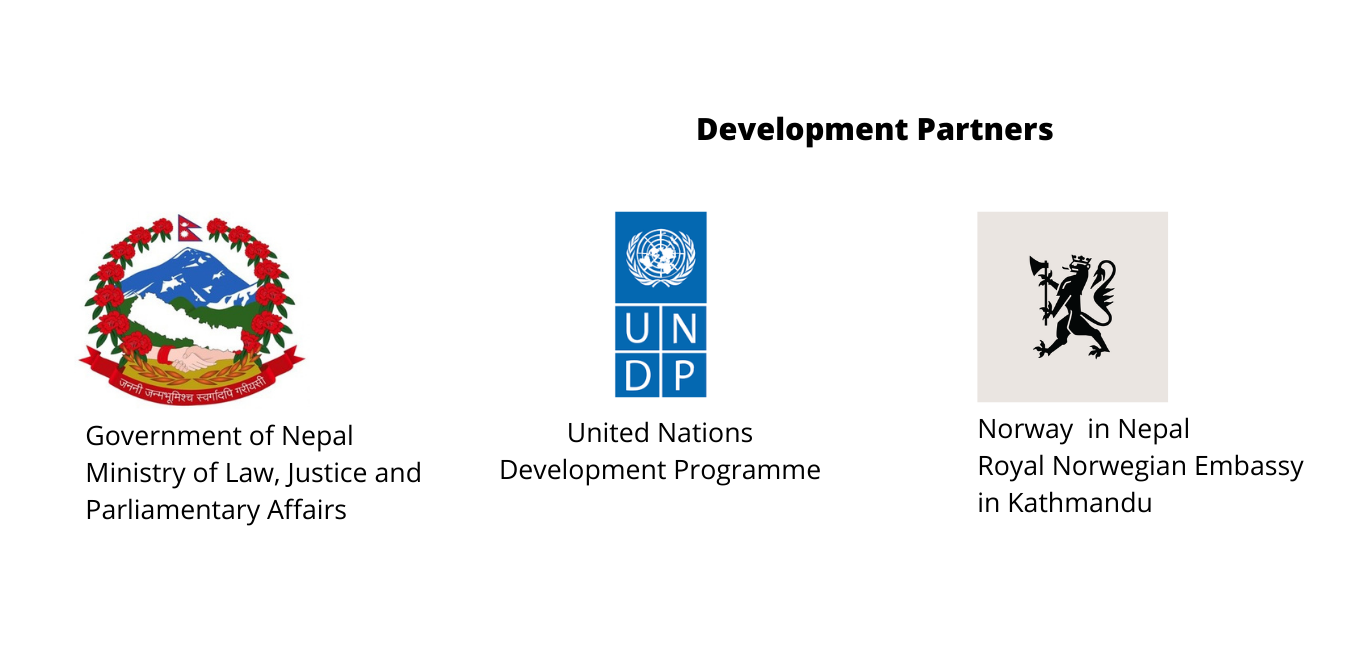Introduction
The Constitution of Nepal envisages a well-established federal system of governance with significant devolution of powers from central to provincial and local authorities, particularly in legislative drafting. Likewise, the formulation of necessary legislation is crucial and became the prime concern of all the government authorities to transform the spirit of the Constitution through federalization in lawmaking. Consequently, Nepal has experienced legislative changes in all levels of governance.
Taking this concern into consideration, the Ministry of Law, Justice and Parliamentary Affairs (MoLJPA), with the support from the Enhancing Access to Justice through Institutional Reform Project (A2J Project), had provided several capacity enhancement training to the legal officials on law drafting at the province and local levels. A2J Project, in consultation with the MoLJPA, has planned to develop a Web Portal to facilitate an online course on law drafting to continue the capacity enhancement of the officials in this regard and allows other interested individuals to develop their capacity through a virtual platform. This process holds two parts; (i) developing a web portal (technical) and (ii) supplying content into the relevant section (substance).
Objectives
The course aims to facilitate online training on legislative drafting. The officers assigned by the Ministry of Law, Justice and Parliamentary Affairs (MoLJPA), and also interested officers/individuals can go through and obtain the training/courses on legislative drafting.
Eligibility
The legal officers assigned by the MoLJPA, and any other officer/interested individuals working in the law and justice area will be eligible to enroll in the course. Participants are required to register with all mandatory information in the registration form. Based on the information provided by the participants in the registration form, the administrator will send the link to those participants who are eligible for this course. The administrator will send the link notification to the applicants in the registered email within 24 hours.
Policies / Guidelines
The online course considerably emphasizes accomplishing tasks/assignments that promote and enhance the knowledge and skill of legislative drafting. Throughout the modules, the designing of tasks/assignments is in the form of activities and exercises. The modules' sequences have been arranged systematically so that the officers can reinforce and correlate them to their learnings from the previous modules. Concerning the planning of the study, the course suggests finishing an already started module completely before diving into the next module.
One should complete and pass all modules to claim the certificate.
Acknowledgment
Ministry of Law, Justice and Parliament Affairs (MoLJPA) is grateful to the Royal Norwegian Embassy in Nepal and United Nations Development Programme (UNDP) for the generous support provided through the A2J Project to develop this online law drafting training.
The A2J Project focuses on the reform of the legal aid system, supporting national efforts in enhancing the capacity of officials in drafting necessary laws and implementation of constitutional provisions on fundamental rights through legislative reform, in particular, on enhancing access to justice at the local level.
Course Duration
Eligible participants are required to complete the course within 90 days from the first log-in date. Failure to complete the course within the timeframe will result in de-registration from the system.
Disclaimer
This online law drafting training course is developed by a group of experts under Enhancing Access to Justice through Institutional Reform Project. The content and views given as course materials do not represent the official position of MoLJPA and the A2J Project. The content in this training course is based on Course Materials on Legislative Drafting developed by the Commonwealth of Learning (http://oasis.col.org/handle/11599/459) and is used only for educational purposes. We acknowledge the Commonwealth of Learning (COL) for reference.

